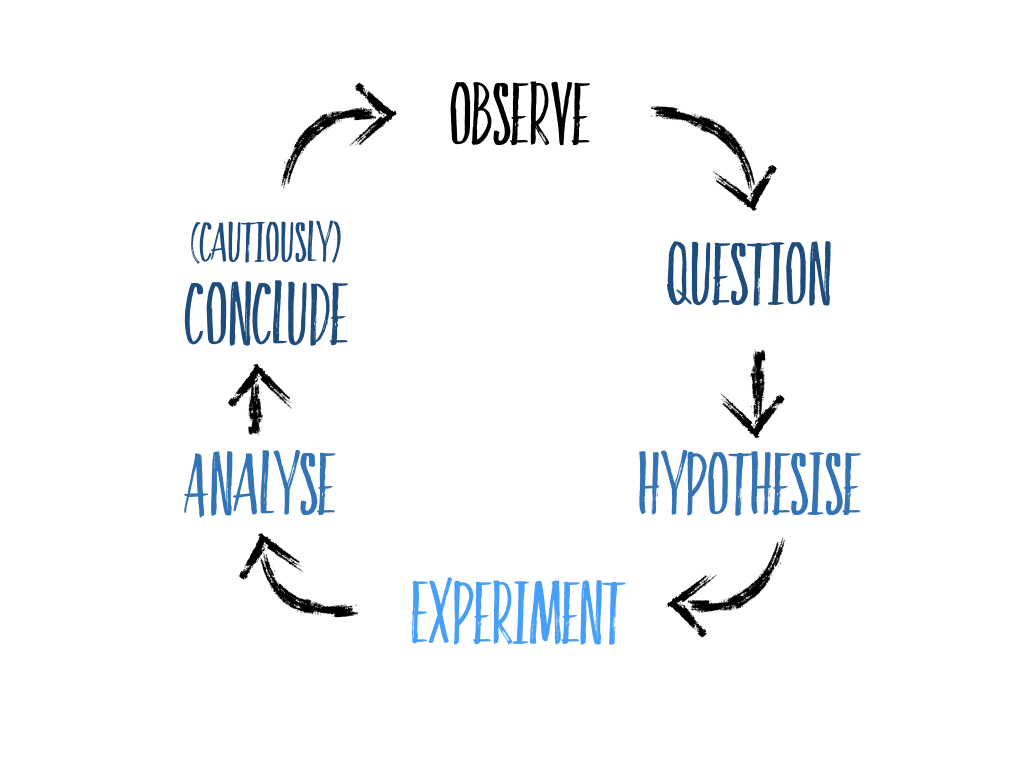
How to Turn Curiosity Into Progress
31st May 2018
In the last few posts, we’ve been exploring what it takes to get more curiosity happening in your culture. We’ve looked at the importance of permission, and purpose. Today we’re going to round things off by taking a look at the end game: making progress turning questions into action.
Progress
It’s pretty common to have ideas but do nothing with them, right? Just think of the last time you were in the coffee shop or bar and you were talking up your brilliant idea about how things should be, and what you’d do to change the world. Done anything about that yet?
In these scenarios, the trick is less about needing permission to be curious and more about making ideas into actions. You want to go from a place of ‘ideas-in-the-pub-never-acted-on’ to ‘ideas-at-work-applied-now’!
Did you know that the number one driver of motivation at work isn’t money, a good boss, or beanbags in the office? As cited in the Harvard Business Review’s article “The Power of Small Wins”:
“Of all the things that can boost emotions, motivation, and perceptions during a workday, the single most important is making progress in meaningful work. And the more frequently people experience that sense of progress, the more likely they are to be creatively productive in the long run.”
In other words, when you come up with a meaningful (or at least interesting) idea, the best thing you can do next is to act on it.
Think Different
Most of us can fall into the trap of lazy thinking. We observe something, and then we jump to a conclusion. For example, there’s no oxygen on Mars, so humans can’t live there. That thinking looks like this:

When we think like this, we limit the possibilities. If we want to generate new possibilities and by extension, new results, we need to take a more scenic route.
Tim Urban, the author of the blog waitbutwhy.com, profiled the prolific entrepreneur Elon Musk. More specifically, he wrote about how Musk thinks. Musk manages to achieve the amazing things he does because he thinks like a scientist. He starts with curiosity and locks onto something interesting. Hmm, humans might need somewhere else to live if this planet becomes uninhabitable. Then he formulates a question around it. What would it take for humans to live on Mars? Then he designs a hypothesis to test the question, tests it, observes what happens, analyses the results, and adapts as he goes. That process enables progress. It’s called the scientific method. Elon Musk is making good progress on the ‘humans on Mars’ idea.
The scientific method is essentially about putting a few more rigorous steps in between ‘Observe’ and ‘Conclude’. It looks like this:

Another example. About six months ago, I got really interested in how I could help my clients generate and apply more curiosity in the workplace. So, rather than simply wonder about that, I took action. I ran a few ‘learning labs’ where I tested out my ideas with clients and got useful feedback. I followed up with the participants to see what they were experimenting with, and what they were learning. And of course, I’ve been sharing what I’ve been learning from all of that with you, here. And now I’m finally offering a programme on leading curiosity. If I hadn’t acted on my curiosity, I’d still be where I was back six months ago.
Some other tips for cultivating a sense of progress from curiosity:
- Don’t just do brainstorming, do action-storming. Ask “what are the specific actions we could take in the next 24 hours?” Then commit to doing something.
- Take the first step, not the second or the third. Just do the next thing that seems right. (For inspiration, check out David Whyte’s poem on that here)
- Don’t announce big changes. Instead, do ‘pilots’ and ‘experiments’. People are less resistant to changes if they see them as temporary.
George Bernard Shaw said, “all progress depends on the unreasonable man.” And to be unreasonable, you have to act on curiosity. Go do that.
Piqued your interest? Check out my Leading Curiosity workshop or get in touch for a chat.
Photo: USA Today
Like this post? You’re only getting half the story. Sign up to my ‘Thinking From The Edge’ newsletter, delivered monthly to your inbox.
Are you a Change Maker? Learn more about my Change Makers programme, including next intake dates.

